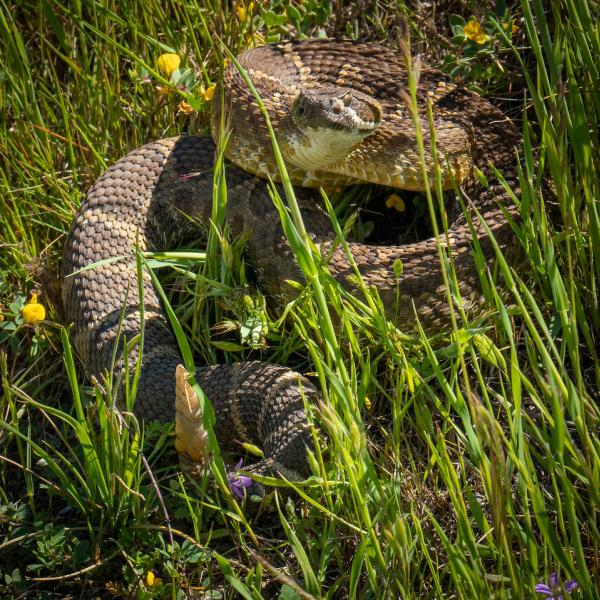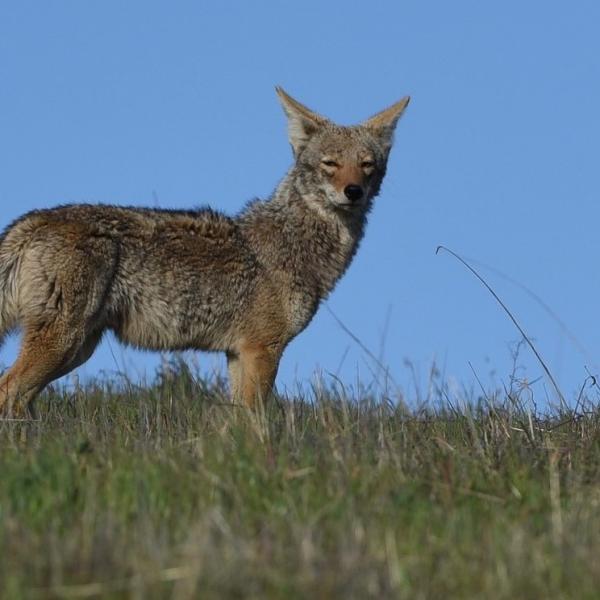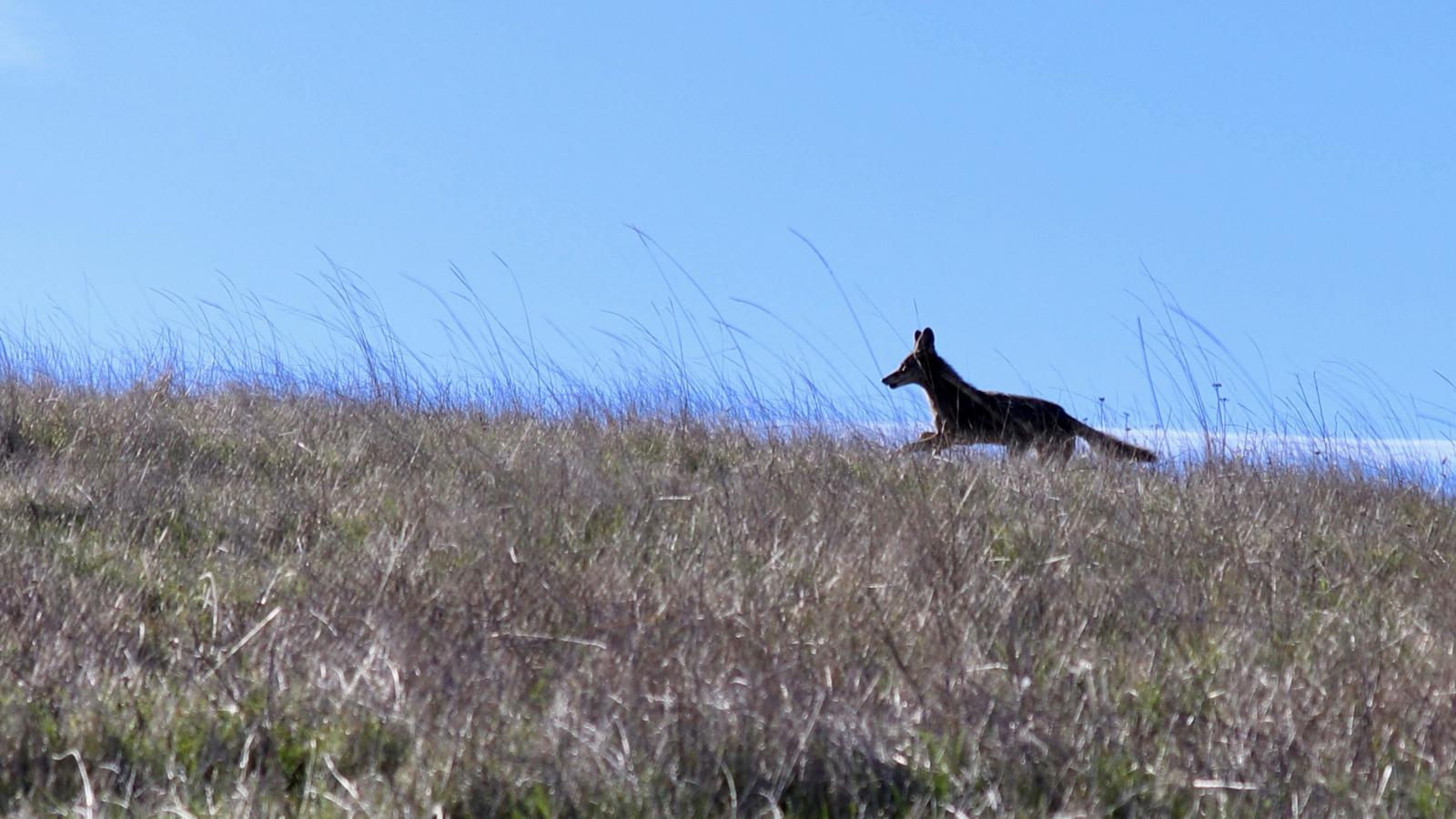The opportunity to view wildlife is one reason why many people visit Midpen preserves. When viewing wildlife, please keep two things in mind: wildlife can be unpredictable, and we want to keep wildlife wild. As with any activity a degree of caution and common sense is necessary.
Within Midpen preserves, all wildlife and their surrounding habitat is protected. If you are fortunate enough to encounter wildlife during your visit, do not approach, touch, disturb or feed it. Although wild animals are generally fearful of humans and will run away, some wildlife can become acclimated to humans and may not immediately retreat. On rare occasion, wildlife can even be dangerous. Visitors can help by allowing natural processes to occur. Leave young wildlife alone, and do not disturb sick or injured animals. Report any concerns to Midpen staff by emailing info@openspace.org.
Safety Guidelines
- Maintain a safe distance. Getting too close to any wildlife is very stressful on the wildlife and may pose a danger to you or the animal. If an animal approaches you, it is your responsibility to move away. Your safety is your responsibility!
- Do not get between an adult and its young. Parents can be protective of their young and may be more aggressive towards humans and dogs to keep their offspring safe.
- Feeding wild animals is never appropriate. Wildlife can get sick from eating human food. Wildlife that is fed may become habituated to approaching humans expecting food, which can result in serious injury or death to both people and animals.
- Do not touch or attempt to rescue young, sick or injured wildlife. Wildlife can carry diseases such as rabies and should never be handled. Some animals may leave their young unattended for hours at a time while they seek food. Avoid all contact.
- Keep dogs on a leash, do not allow them to chase or disturb wildlife. A fixed leash no longer than six feet is recommended.
Wildlife Encounters
Report unusual wildlife encounters directly to a ranger or call us at 650-691-1200. On weekends or after 5 p.m. on weekdays call 650-968-4411.
Mountain Lions
If you encounter a mountain lion, take these safety precautions:
- DO NOT RUN!
- Keep children and pets close.
- Do not approach the lion.
- Do not turn your back on the lion.
- Do not crouch down or bend over.
- Back away slowly while paying attention to how the lion is reacting to your movements. If you are getting farther away from their young, the lion may relax or walk away.
- Leave the area and inform other preserve visitors of the potential danger.
- Fight back, if attacked.
- Report sightings immediately to 650-691-2165.


Rattlesnakes are native to this area and are more active in warm weather. Be careful stepping over logs, and be cautious of putting hands or feet under logs or rocks. In the event that you are bitten, remain calm, call 911 and if necessary have someone hike out for help. Do not attempt to cut a bite or suck out venom. Seek professional medical assistance.

Coyotes are occasionally sighted in the open space preserves. Coyotes are more territorial during the months when they have pups with them — late spring to early summer. Make sure you follow common sense rules to keep yourself, your children, and your pets safe:
- Never feed coyotes
- Keep children and pets close
- Keep dogs leashed
- Do not approach coyotes or their pups
- Do not allow a coyote to get in between you and your pet or child
If you encounter an aggressive coyote, make loud noises, stand tall and wave. Pick up and carry small dogs or children. Back away slowly and fight back if attacked.
If you see a coyote behaving aggressively toward people or pets, alert a ranger or the Midpen office as soon as possible. The threat to public safety will be assessed and appropriate action will be taken.
Bats are native animals that use a variety of habitats and provide insect control throughout the open space preserves. Though they are beneficial, they can also pose risks to people.
- Do not touch bats.
- Bats may carry diseases, including rabies, that can be transmitted to humans. Avoid all contact.
- If you come in contact with a bat, seek immediate medical attention.
- Occasionally visitors may encounter a bat on the ground or that may be in distress, especially in areas where roosting occurs.
- If you encounter a sick or injured bat, alert a ranger or the Midpen office as soon as possible.
Invasive Animals
Do not release pets into the wild! Releasing pets can harm native species through predation, competition for food, and disease. If you see an invasive animal at a Midpen preserve, please report the sighting to a ranger.

